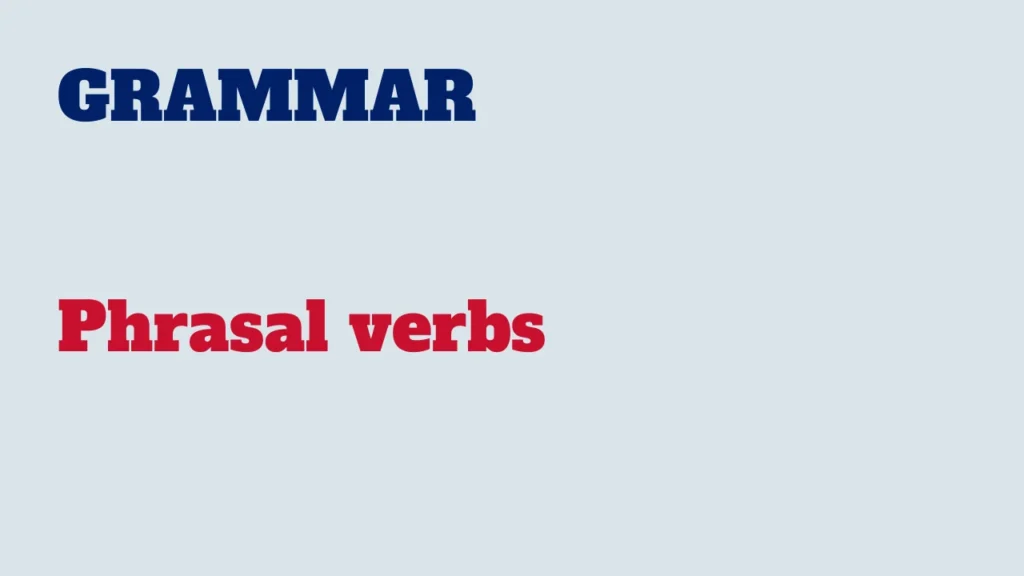Phrasal verbs are combinations of a main verb and one or more particles (prepositions or adverbs). These combinations create a new meaning that is often different from the original verb. Phrasal verbs are commonly used in English, adding nuance and expressiveness to the language.

In this lesson, we will delve into the structure, types, and common usage of phrasal verbs.
Structure of phrasal verbs:
Phrasal verbs consist of a main verb and one or more particles.
The particle can be a preposition or an adverb.
Phrasal verbs can be separable or inseparable.
Examples:
Separable phrasal verb:
“She picked the book up.”
Inseparable phrasal verb:
“They ran into an old friend.”
Types of phrasal verbs:
Transitive phrasal verbs:
These phrasal verbs require a direct object.
Example:
“He looked up the information.”
Intransitive phrasal verbs:
These phrasal verbs do not take a direct object.
Example:
“They broke up last year.”
Separable phrasal verbs:
The object can come between the main verb and the particle or after the particle.
Example: “She turned the radio off.” or “She turned off the radio.”
Inseparable phrasal verbs:
The object must follow the particle.
Example:
“He ran into a friend.”
Common phrasal verbs and their meanings:
Turn up: to arrive or appear.
Example:
“She turned up at the party.”
Give up: to surrender or stop doing something.
Example:
“I won’t give up on my dreams.”
Bring up: to mention or raise a topic.
Example:
“He brought up an interesting point.”
Break down: to stop functioning or lose control emotionally.
Example:
“The car broke down on the highway.”
Additional tips:
Context matters:
The meaning of a phrasal verb is often determined by the context in which it is used.
Learn phrasal verbs in context:
It’s helpful to learn phrasal verbs in sentences to understand their usage.
Understanding and using phrasal verbs adds depth and naturalness to your English language skills. Practice incorporating them into your speech and writing to become more proficient in their usage. Happy learning!



